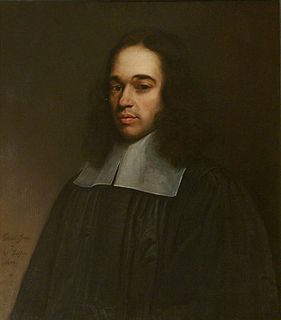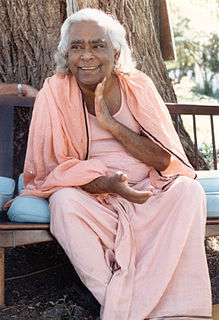A Quote by Clive Barker
His body and his mind went about their different businesses. The former, freed from conscious instruction, breathed, rolled, sweated, and digested. The latter went dreaming.
Related Quotes
The difference between a man who faces death for the sake of an idea and an imitator who goes in search of martyrdom is that whilst the former expresses his idea most fully in death it is the strange feeling of bitterness which comes from failure that the latter really enjoys; the former rejoices in his victory, the latter in his suffering.
I heard there are no male sidhe-seers." Where did you hear that?" Around." And which one of those are you in doubt about Ms. Lane?" Which one of what?" Whether I see the Fae, or whether I'm a man. I believe I've laid your mind to rest on the former; shall I relieve it on the latter?" He reached for his belt. Oh, please." I rolled my eyes. "You're a leftie, Barrons." Touche, Ms. Lane," he murmered.
When Heaven is about to confer a great office on a man, it first exercises his mind with suffering, and his sinews and bones with toil ; it exposes his body to hunger, and subjects him to extreme poverty ; it confounds his undertakings. By all these methods it stimulates his mind, hardens his nature, and supplies his incompetencies.
It is God's earth out of which man is taken. From it he has his body. His body belongs to his essential being. Man's body is not his prison, his shell his exterior, but man himself. Man does not "have" a body; he does not "have" a soul; rather he "is" body and soul. Man in the beginning is really his body. He is one. He is his body, as Christ is completely his body, as the Church is the body of Christ
As long as the reason of man continues fallible, and he is at liberty to exercise it, different opinions will be formed. As long as the connection subsists between his reason and his self-love, his opinions and passions will have a reciprocal influence on each other, and the former will be objects to which the latter attach themselves.
Speed is the form of ecstasy the technical revolution has bestowed on man. As opposed to a motorcyclist, the runner is always present in his body, forever required to think about his blisters, his exhaustion; when he runs he feels his weight, his age, more conscious than ever of himself and of his time of life. This all changes when man delegates the faculty of speed to a machine: from then on, his own body is outside the process, and he gives over to a speed that is noncorporeal, nonmaterial, pure speed, speed itself, ecstasy speed.
When a man in the process of dreaming becomes conscious that he is dreaming, he is no longer identified with the phenomena; he is not affected exultantly or dolefully. God consciously dreams His cosmic play and is unaffected by it's dualities. A yogi who perceives his real self as separate from his active senses and their objects never becomes attached to anything. He is aware of the dream nature of the universe and watches it without being entangled in its complex but ephemeral nature.
The only distinction between freedom and slavery consists in this: In the former state a man is governed by the laws to which he has given his consent, either in person or by his representative; in the latter, he is governed by the will of another. In the one case, his life and property are his own; in the other, they depend upon the pleasure of his master. It is easy to discern which of these two states is preferable.
Man in his raw, natural state as he comes from the womb is morally and spiritually corrupt in disposition and character. Every part of his being-his mind, his will, his emotions, his affections, his conscience, his body-has been affected by sin (this is what is meant by the doctrine of total depravity)






































